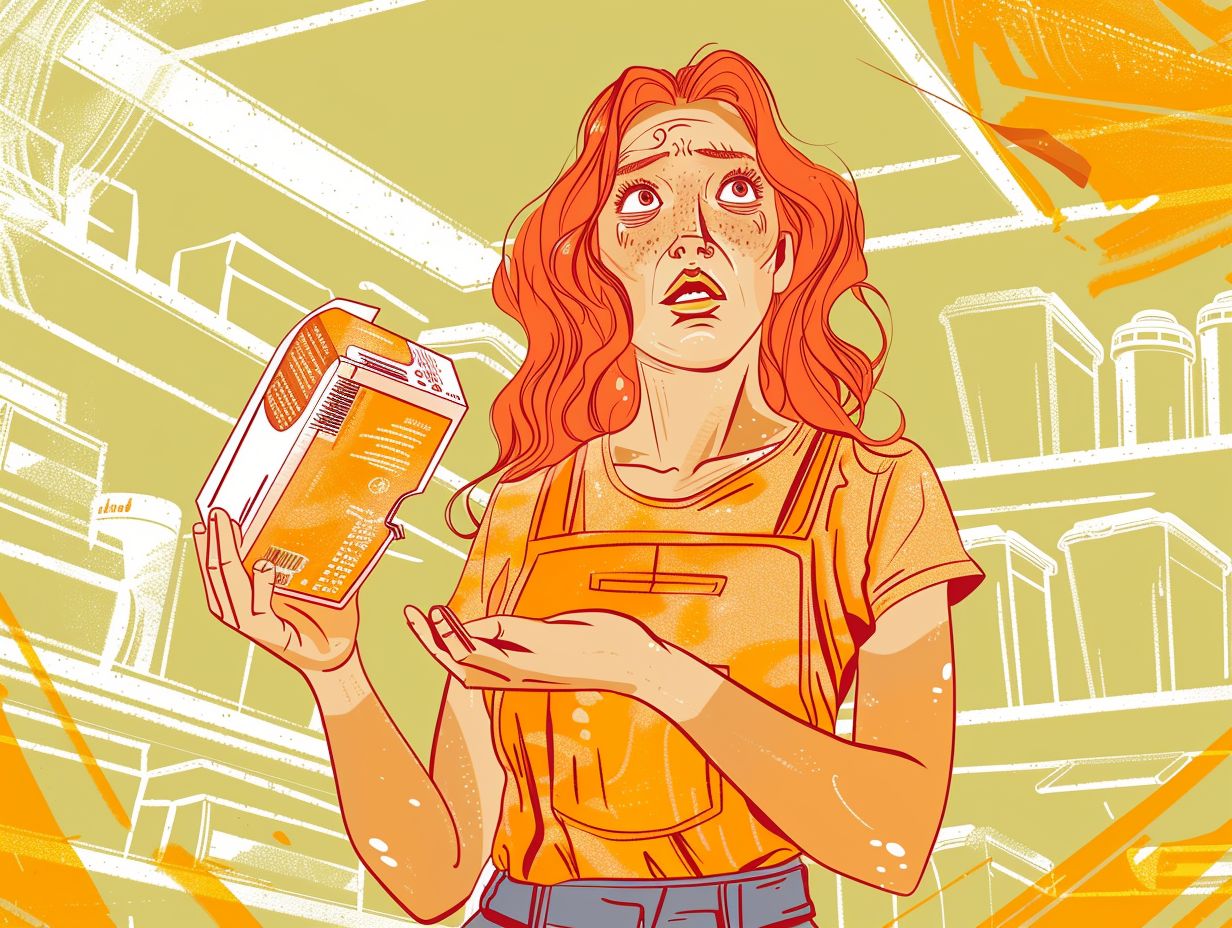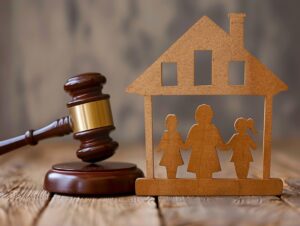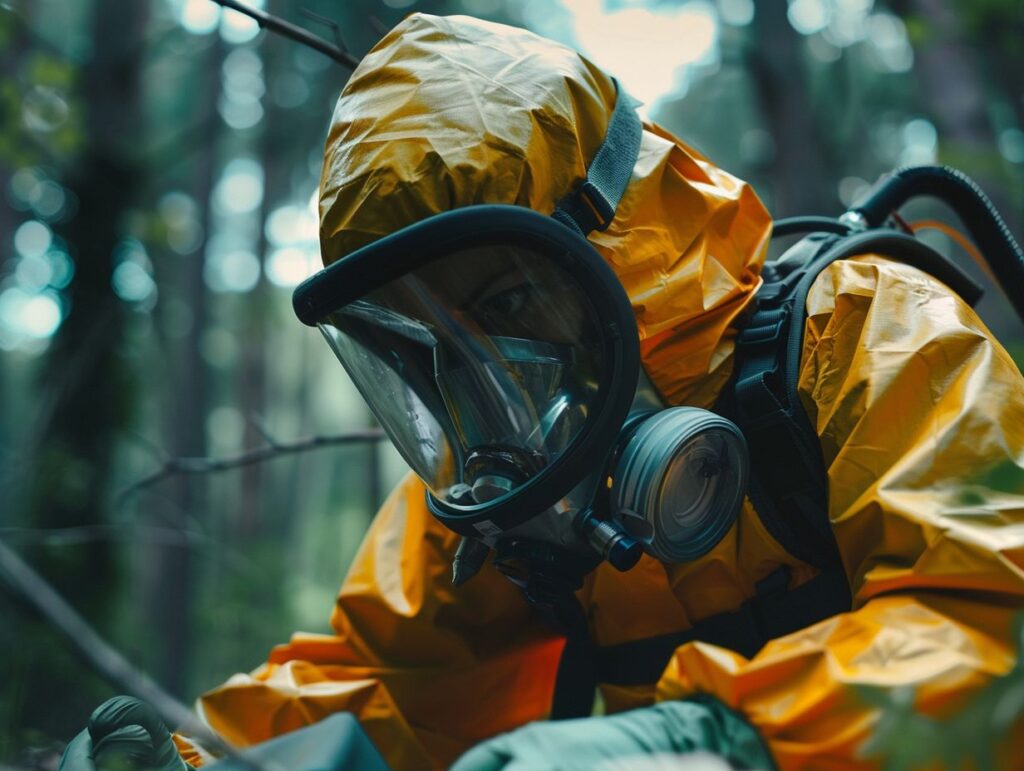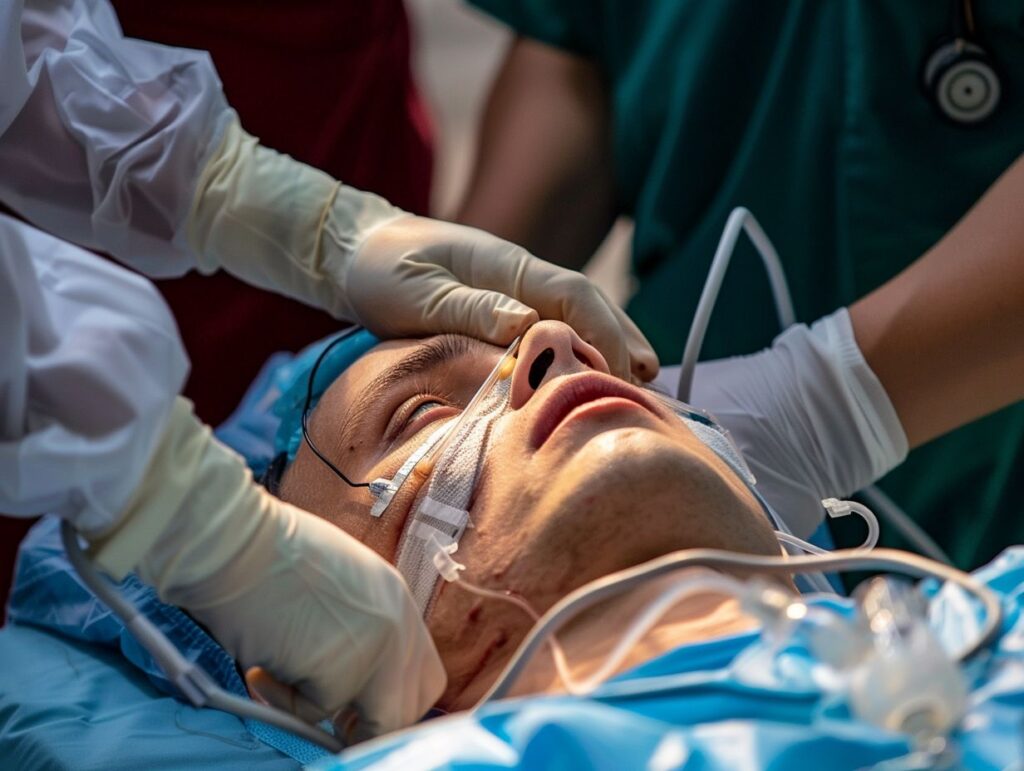Have you ever been injured by a defective product in Florida? If so, you may be entitled to compensation through a product liability claim.
In this comprehensive guide, we will discuss the various types of product liability claims, who can be held liable, and what steps you should take if you find yourself in this situation.
From seeking medical attention to collecting evidence and contacting a product liability lawyer, we will provide you with the tools you need to prove your claim and recover damages.
Stay tuned for valuable tips on handling product liability claims in Florida to ensure you receive the justice you deserve.
Types of Product Liability Claims

Knowledge of the various kinds of product liability claims is important for individuals looking to seek compensation for harm caused by faulty products. These claims are commonly classified by the Consumer Product Safety Commission into manufacturing defects, design defects, and marketing defects.
1. Manufacturing Defects
Manufacturing defects occur when a product deviates from its intended design due to errors in the manufacturing process, often resulting in negligence and strict liability claims against the manufacturers.
Examples of manufacturing defects can include situations where faulty machinery in the production line leads to products with missing components or improper assembly. Defects can also arise from substandard materials, such as weak plastic or low-grade metals, causing issues like parts breaking easily or premature wear and tear.
Negligence may stem from inadequate quality control measures or insufficient training for production staff. Strict liability comes into play when a defect causes harm regardless of fault, placing the responsibility on manufacturers to ensure product safety.
2. Design Defects
Design defects occur when a product’s inherent design is unsafe, failing to meet the consumer expectation test and the standards set by organizations like the American National Standards Institute.
For instance, if a blender has a flawed blade design that easily breaks during use, posing a risk of injury to the user, it would be classified as a design defect. In such scenarios, the consumer expectation test is applied to assess whether a reasonable consumer would foresee such a danger from the product’s design.
The American National Standards Institute offers guidelines and criteria for product safety, and if a product falls short of these standards, it could be deemed responsible for any resulting harm to consumers.
3. Failure to Warn
The lack of adequate warning labels or instructions, also known as marketing defects, can result in consumers not being informed about potential risks, leading to possible claims of fraud and misrepresentation.
Proper warning labels play a crucial role in ensuring consumer safety and shielding businesses from legal liabilities. For example, the absence of warning labels on a medication could have severe health implications if a consumer is unaware of potential side effects or interactions. Similarly, products like electronic devices lacking clear safety instructions might contribute to accidents.
Instances of fraud and misrepresentation often emerge when companies intentionally deceive consumers regarding a product’s safety or efficacy, resulting in a breach of trust and potential harm.
Who Can Be Held Liable for Product Liability?
In product liability cases, various parties can be held accountable, such as manufacturers, distributors, and retailers. These defendants, often large companies, may face extensive legal proceedings if found liable for the defect.
Manufacturers have a critical role in designing, producing, and testing products. They bear the responsibility of ensuring product safety and quality before they are released to the market. Distributors serve as intermediaries by transporting products from manufacturers to retailers, while retailers sell the products to consumers.
When determining liability in product cases, courts take into account factors like negligence, breach of warranty, and strict liability. For instance, if a toy defect causes an injury, the manufacturer, distributor, and retailer could all be held responsible based on their roles in the supply chain.
What to Do if You Have a Product Liability Claim
If there is a belief in having a product liability claim, it is important to promptly take appropriate steps to safeguard rights. This includes seeking medical attention, gathering evidence, and consulting with a personal injury attorney who specializes in product liability.
1. Seek Medical Attention
The primary and most crucial step following injuries caused by a defective product is to obtain medical attention. This is important for documenting any injuries and ensuring proper treatment, which can also assist your personal injury attorney in evaluating medical expenses.
Getting prompt medical care not only protects your health but also plays a significant role in the legal process if you opt to pursue a product liability case. Medical records act as concrete evidence of the nature and impact of your injuries, providing tangible documentation for your case.
By seeking medical attention promptly, you establish a clear connection between the product defect and your injuries, bolstering your claim. Detailed medical records can aid your attorney in calculating damages related to medical treatment, rehabilitation, and ongoing care resulting from the product defect.
2. Collect Evidence

Gathering evidence such as the defective product, photographs of the damages, and witness statements is essential for building a robust product liability claim.
Examining the defective product can offer valuable insights into any manufacturing flaws or design defects that may have led to the injury. Photographs of the damages act as visual evidence of the harm caused by the product, illustrating the extent of the injuries sustained. Witness statements are significant as they can provide firsthand recounts of how the incident transpired, offering additional perspectives and supporting the victim’s narrative.
Each piece of evidence plays a crucial role in establishing liability and ensuring the responsible party is held accountable for the harm inflicted.
3. Contact a Product Liability Lawyer
Seeking assistance from an experienced product liability lawyer at a reputable firm like Emmanuel Sheppard & Condon can provide individuals with the necessary legal representation to navigate the complexities of their claim. These lawyers possess knowledge of the laws related to defective products and are capable of guiding clients through the entire legal process.
Their expertise enables them to evaluate the strength of the case, collect evidence, negotiate with insurance companies, and advocate for the client’s best interests in court, if required. By having a skilled lawyer on one’s side, the likelihood of a favorable outcome and obtaining rightful compensation for any injuries or damages resulting from a defective product is increased.
How to Prove a Product Liability Claim?
Establishing a product liability claim involves demonstrating that the product was defective, establishing that the defect caused the injury, and verifying the extent of the damages, often under the principles of strict liability.
1. Proving the Product Was Defective
To establish that a product was defective, it is necessary to show that it had a design defect, manufacturing defect, or marketing defect, supported by evidence and potentially expert testimony, in accordance with the standards established by the Consumer Product Safety Commission.
Design defects pertain to flaws in the initial concept or blueprint of a product, rendering it inherently unsafe for consumers. Evidence to support a design defect may include detailed plans, specifications, and expert analysis indicating that a safer alternative design was feasible.
Conversely, manufacturing defects occur during the production process, resulting in individual products deviating from the intended design. To prove a manufacturing defect, documentation such as quality control records and expert inspections demonstrating the deviation from specifications are vital.
Marketing defects involve issues regarding inadequate warnings, instructions, or deceptive advertising, necessitating evidence such as promotional materials and consumer complaints to substantiate the allegation.
2. Proving the Defect Caused Your Injury
It is crucial to establish a causal link between the defect and the injuries sustained, which necessitates providing evidence that directly connects the injuries to the defect while also demonstrating the absence of negligence on the part of the individual.
One effective method to illustrate this connection is through medical evidence, such as comprehensive reports from healthcare professionals that explicitly link the specific injuries to the defect. These reports can create a clear evidential path indicating how the defect resulted in the harm experienced.
Expert testimony serves as a pivotal factor in strengthening the case. Experts within relevant fields can assess the defect, injuries, and circumstances to provide professional opinions regarding the causal relationship. Their impartial insights are significant in establishing the link between the defect and the injuries in a compelling manner.
3. Proving Damages
Proving damages requires documenting all losses incurred due to the injury, including medical expenses, lost wages, and other compensatory damages to ensure adequate compensation for both economic loss and non-economic impacts.
When pursuing a claim for damages, it is essential to gather and present evidence to support the case. This evidence may include financial records like medical bills, receipts for prescription medications, and invoices for any necessary medical treatments.
Expert evaluations from healthcare providers, vocational experts, or economists can help quantify the extent of the damages and provide a clear understanding of the financial impact of the injury. Compiling this evidence strengthens the claim and increases the likelihood of receiving fair compensation for the harm suffered.
What Damages Can You Recover in a Product Liability Claim?
In a product liability claim, various types of damages can be recovered to compensate for:
- Financial losses
- Medical expenses
- Lost wages
- Pain and suffering
In some cases, punitive damages may also be awarded to penalize particularly egregious conduct.
1. Medical Expenses

Medical expenses represent a significant portion of compensatory damages in a product liability claim. These expenses cover various healthcare needs such as treatments, surgeries, medications, and other medical services determined by your personal injury attorney.
The range of medical expenses can include emergency room visits, diagnostic tests, rehabilitation sessions, and ongoing medical care. It is essential to maintain detailed medical records that document all treatments, appointments, medications, and services related to the injury to ensure proper compensation for these costs.
These records not only provide evidence to support the claim but also assist in accurately determining the total medical expenses incurred as a result of the product defect. Thus, maintaining thorough and organized medical records is crucial for maximizing the recovery of medical expenses in a product liability case.
2. Lost Wages
Lost wages, which consist of both past and future income that was unable to be earned due to the injury, are a crucial element of financial losses for which compensation can be sought in a product liability claim. When documenting lost wages for a product liability claim, it is essential to gather evidence such as pay stubs, tax returns, and employment records to establish your earnings history.
Pay stubs offer detailed information about your hourly rate, hours worked, and deductions, while employment records display your position, responsibilities, and wages. To calculate future earnings potential, experts may take into account factors like your career progression, potential promotions, and anticipated salary increases. This evaluation assists in determining the injury’s impact on your future income-earning ability.
3. Pain and Suffering
Pain and suffering are non-economic compensatory damages in a product liability claim, covering physical pain and emotional distress caused by the injury, which are assessed by a personal injury attorney. These damages are essential in compensating individuals for the intangible effects of an injury, such as loss of enjoyment of life, psychological trauma, and inconvenience.
Factors influencing the assessment of pain and suffering include the severity of the injury, duration of recovery, permanency of effects, and impact on daily activities.
The emotional toll, such as anxiety, depression, and fear resulting from the injury, plays a significant role in determining these damages. Understanding these factors aids in establishing a fair and just compensation for the emotional distress experienced by the injured party.
4. Punitive Damages
Punitive damages may be awarded in addition to compensatory damages if the defendant’s actions involved fraud, gross negligence, or misrepresentation, serving as a punishment and deterrent for such conduct.
In product liability cases, courts consider the severity of the defendant’s conduct to determine the eligibility for punitive damages. For example, in the famous case of Liebeck v. McDonald’s Restaurants, where punitive damages were awarded, Stella Liebeck suffered severe burns from spilled hot coffee, and the jury found that McDonald’s had acted with gross negligence.
The punitive damages were intended to prevent similar behavior in the future by imposing a financial penalty on the defendant. Such cases highlight the importance of holding corporations accountable and ensuring consumer safety.
Tips for Handling Product Liability Claims in Florida
Managing product liability claims in Florida necessitates understanding of particular state laws, such as the statute of limitations, and the assistance of an experienced personal injury attorney to guarantee your rights are safeguarded and your case is robust.
1. Keep All Evidence and Documentation
It is essential to retain all evidence and documentation, including receipts, medical records, and photographs of the defective product and injuries, to strengthen a legal case in a product liability claim.
These pieces of evidence are critical in establishing negligence or wrongdoing by the manufacturer or seller. Receipts can verify the purchase of the product, while medical records showcase the extent of the injuries sustained. Photographs offer visual evidence of any physical harm endured due to the product defect.
Systematically collecting and organizing these documents can assist in constructing a compelling narrative for the case, presenting a detailed overview of the harm and losses suffered as a consequence of the defective product.
2. Do Not Speak to Insurance Companies Without a Lawyer
It is advisable not to communicate with insurance companies without seeking advice from a qualified attorney, as they might propose settlement amounts that are considerably lower than what you are entitled to for your injuries and damages.
Insurance companies frequently utilize strategies to reduce payouts, such as minimizing the severity of injuries, challenging liability, or hastening settlement offers. Engaging legal representation can help balance the scales by ensuring that your rights are safeguarded and that you receive appropriate compensation.
An experienced attorney can negotiate on your behalf, assess all offers, and provide guidance on the most suitable course of action. They possess an understanding of the intricacies of insurance claims and can assist you in navigating the process to secure a settlement that accurately reflects the impact of your injuries.
3. Consult with a Product Liability Lawyer

Seeking guidance from a product liability lawyer at a reputable firm like Viles & Beckman, LLC ensures that individuals receive experienced legal representation and guidance throughout the claims process.
The lawyers’ expertise in handling product liability cases equips them with the knowledge and skills to accurately assess the situation, identify liable parties, and develop a strong legal strategy tailored to each specific case.
By entrusting the product liability claim to a specialized lawyer, individuals benefit from their in-depth understanding of legal complexities, ensuring that their rights are protected and that they have the best chance of achieving a favorable outcome in the case.
Frequently Asked Questions
What is product liability and how does it apply in Florida?
Product liability refers to the legal responsibility of a manufacturer or seller for any damages or injuries caused by their product. In Florida, product liability laws are in place to protect consumers from faulty or dangerous products.
Who can file a product liability claim in Florida?
Any individual who has suffered damages or injuries as a result of a defective product can file a product liability claim in Florida. This includes the consumer who purchased the product, as well as any other person who may have been affected by the product.
What is the statute of limitations for filing a product liability claim in Florida?
In Florida, the statute of limitations for filing a product liability claim is four years from the date of the injury. It is important to file your claim within this time frame in order to have a valid case.
What steps should I take if I believe I have a product liability claim in Florida?
The first step is to seek medical attention for your injuries. Then, document any evidence that can support your claim, such as the product itself, receipts, and medical records. Finally, consult with a qualified attorney who specializes in product liability cases in Florida.
Is there a limit on the compensation I can receive from a product liability claim in Florida?
No, there is no limit on the compensation you can receive from a product liability claim in Florida. The amount of compensation will depend on the severity of your injuries, the cost of medical treatment, and other factors related to your case.
Can I still file a product liability claim if I signed a waiver or release form?
It is possible to still file a product liability claim in Florida even if you signed a waiver or release form. These forms are often invalidated if the product was inherently dangerous or if the manufacturer was aware of the defect and failed to warn consumers.























Rate this article:
Average rating 0 / 5. Vote count: 0
No votes so far! Be the first to rate this post.
No Comments yet!